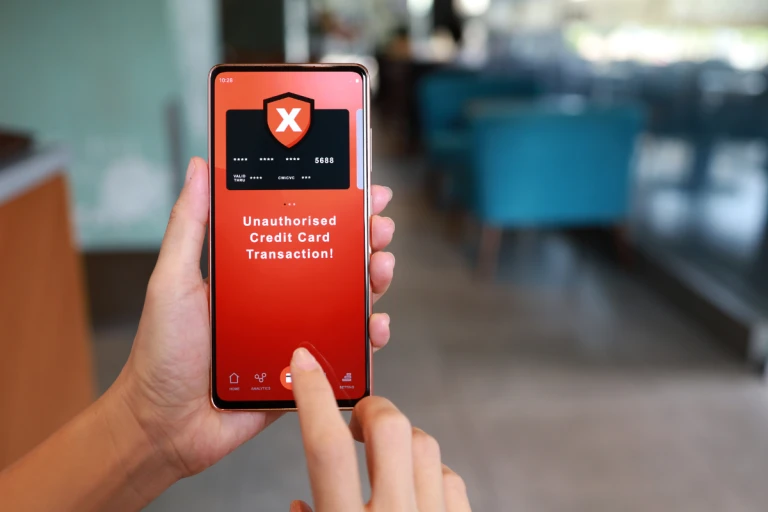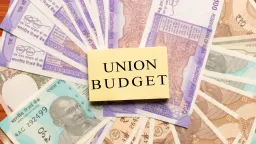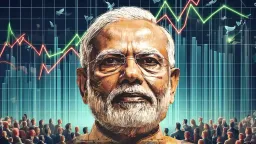A Guide to Combat Banking Frauds
Every day, our inboxes ping with promises of improbable windfalls and urgent banking alerts demanding immediate action. These seemingly innocuous messages, often flashing the allure of winning lotteries or requesting urgent account verifications, are often the gateway to a dangerous realm – banking frauds.
In India, the battle against banking frauds has been ongoing, despite steadfast efforts by governmental bodies and regulatory authorities. However, the landscape has evolved. Today's fraudsters leverage the vast expanse of the internet, including the dark web, sophisticated malware, and cleverly crafted fake identities, to infiltrate personal bank accounts and siphon away earnings within mere moments.
In this discourse, we delve into the intricate web of banking frauds prevalent in India. We navigate through the diverse array of scams plaguing financial institutions, while also arming you with invaluable insights into shielding your finances from these perilous threats. Let's embark on this journey of awareness and empowerment to safeguard your hard-earned wealth.

Top Bank Frauds in India
Here's a compilation of the most rampant and pervasive bank scams plaguing India's financial landscape:
S.No. | Bank Account Scams |
1. | Automatic Withdrawal Scams |
2. | Phishing Scams |
3. | Charity Scams |
4. | Overpayment Scams |
5. | Cheque-Cashing Scams |
6. | Government Masquerader Scams |
Frauds in Detail
Let's delve into the intricate web of common banking frauds, including internet-based scams, that have ensnared many in India:
Automatic Withdrawal Scams:
Fraudsters often lure victims with promises of prizes or enticing offers via calls, SMS, or postcards. They request bank details, including cheque numbers, and use them to create demand drafts, transferring funds from victims' accounts.
Phishing Scams:
In phishing, scammers send SMS or email with deceptive links resembling official bank messages. Victims unknowingly provide personal details like account numbers and OTPs, enabling scammers to access and drain their accounts.
Charity Scams:
Exploiting emotions, scammers pose as charitable organizations, deceiving kind-hearted individuals into donating money. Victims, driven by empathy, fall prey to these fake charities and lose their money.
Overpayment Scams:
Targeting online sellers, scammers pose as buyers, overpaying with fake cheques. They request a refund of the excess amount via online transactions. Sellers, unaware of the scam, lose the refund money and the product's price.
Cheque-Cashing Scams:
Fraudsters approach individuals to cash cheques, claiming they lack a bank account. The cheque bounces, leaving victims liable for the amount withdrawn, a trap that has ensnared many unsuspecting individuals.
Government Masquerader Scams:
Impersonating government officials, scammers inform victims of lottery wins, demanding fees or taxes for processing. Victims, fearing legal consequences, comply, losing money to these deceitful claims.
These scams, rooted in emotional manipulation or false promises, highlight the need for heightened awareness and vigilance against such fraudulent activities.

Preventing Bank Frauds in India
Detecting and reporting banking frauds in India is pivotal. Not only does it result in financial losses, but it also erodes trust in banking systems.
Here's a guide on identifying and reporting bank frauds:
Ways to Prevent Bank Frauds in India | Details |
Don’t Share Your Personal Information | Refrain from sharing your account numbers, passwords, social security details, credit card information, or any unidentified OTPs with individuals unless you absolutely trust them. |
File a Complaint | Never fail/delay to file a bank fraud complaint if you fall prey to a scam |
Never Cash a Cheque for Other People | You should never cash a cheque for an unknown person |
Be Attentive | Thoroughly review messages, emails, or chats before clicking any links or contacting unfamiliar numbers promising cash rewards to avoid potential scams. |
Double-check | You should always verify unsolicited cheques with your bank before cashing |
Never Pay to Redeem Prizes | Never pay any sum to redeem any lottery or prize |
Do Not Engage over the Phone | Never engage scammers on the call, even if they cite themselves as government officials |
Be Cautious on the Internet | Before clicking on any emails or links, inspect the URL, brand name, spelling, etc., as it may be a malware |
Be Careful Over the Call | Exercise discretion when divulging sensitive information over the phone, particularly if you're uncertain about the caller's credibility or intentions. |
Also read: Election Results Send Stocks Skyrocketing: Market Rallies on Optimism
The Bottom Line
In the realm of banking, fraud remains an enduring concern in both offline and online landscapes across India. Despite concerted educational efforts by the government and banks, individuals continue to be vulnerable to these insidious schemes.
While we've outlined prevalent scams here, it's crucial to recognize that the list is far from exhaustive. Vigilance and caution are paramount.
As we conclude, we emphasize the importance of remaining vigilant. Safeguard your personal and banking information, meticulously assess incoming communications, and steer clear of any suspicious activities. Together, let's fortify our defenses against financial fraud.
Follow us on Instagram.









